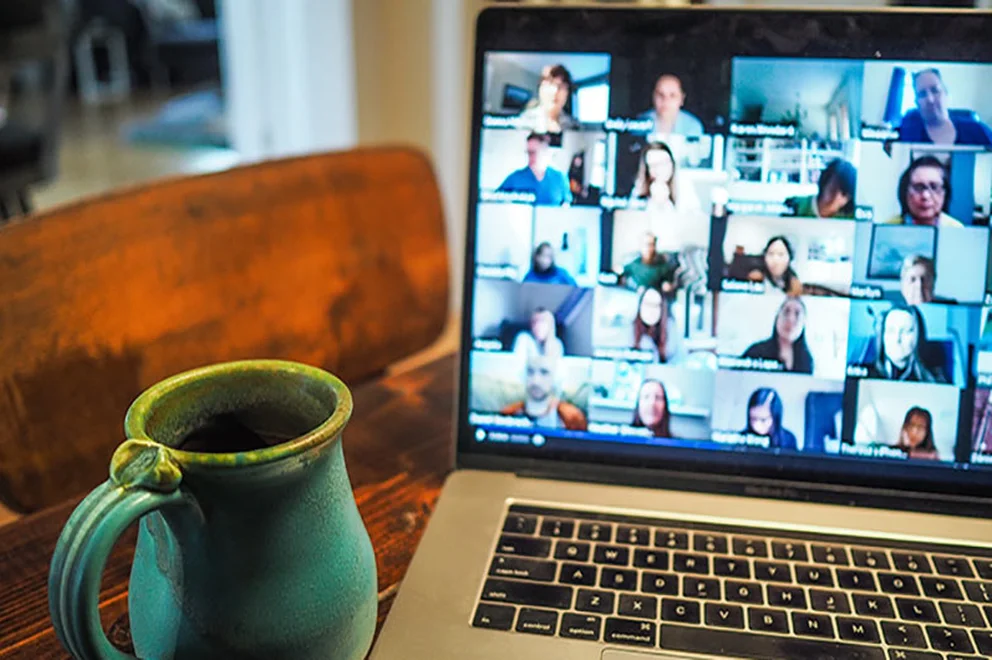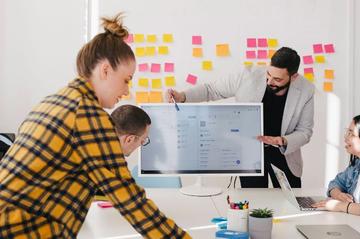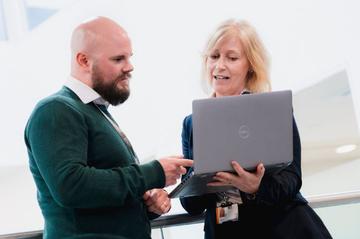Emily Allen: My reflections on ACE 2020
Wed 18 Nov 2020
Blog Author
Emily Allen
Product Manager - HR & L&D
I always leave ACE feeling inspired. I love hearing from people who are specialists in their field. I consider myself as keeping pretty well abreast of current issues and general HR so the areas I like to hear about are ones I don’t come across in my network so much – like the latest thinking from futurologists, technological developments, psychologists and economists. I see it as an opportunity to step away from the day job and really take on board some CPD. It feels like a privilege to be able to do this, but I think it really helps me keep a broad mind, which is especially important in my role looking after the CIPD qualifications at MOL.
We are in a global pandemic which has changed our professional and personal lives for the past 8-9 months. There is a lot of rhetoric around how the current situation is changing us, and how we are all more tuned in to mental health issues and wellbeing. I’m not sure if that’s true. An employment lawyer at the event certainly didn’t agree that the pandemic has made us all kinder.
There was a lot of talk around working from home. The consensus, which we all know intuitively, is that it is a double edged sword. All the issues came up that we have been discussing for a while now. We like the flexibility, we don’t like the office being our home. People with larger living spaces have a better situation. No one misses the daily commute, but we are noticing the heating bill. GDPR is becoming an issue with employees not having proper shredders and locked spaces and employment lawyers are seeing more issues around this. Managers don’t know how to manage from home as well, it’s hard for new recruits to build relationships. On the whole – we’d like a hybrid model in the future with more flexibility but more of a team feel too.
I had three clear favourite talks from ACE this year; Reni Eddo-Lodge was understated and down to earth, Mo Gawdat on how to be happy and Megan Reitz on why employees often don’t speak up at work and how this is deeply embedded in organisational culture.
Anti-racism
The session by Reni Eddo-Lodge, interviewed by the fantastic June Sarpong, was an absolute privilege to attend. There has been so much around Black Lives Matter in the past six months and Reni has written a book that has been pivotal in that movement. I don’t need to explain here how much diversity matters; that a diverse workforce attracts better talent, reflects the communities an organisation serves and increases creativity and improves the bottom line.
Reni highlighted how so much racism is covert and insidious, and how in fact the overt examples are much, much rarer. But this is exactly why it’s more important to keep the conversation going. People don’t want to talk about diversity as they don’t want to upset the apple cart, so we end up trying to bend ourselves ‘into a pretzel’ to please everyone. Anti-racism is unpopular, ‘if you want to be friends with everyone, don’t be an anti-racist’, and she warns not to waste time on those who don’t really care. Pick the people who will make a difference. She doesn’t want just conversations, she wants progress, and she said she was disappointed we are still having these conversations when the book was out in 2017.
Happiness
Mo Gawdat, who has written a book on happiness, did a really great talk and I found his session empowering. After his son died following a routine medical procedure at aged just 21, he looked very deeply into happiness. He says happiness is our default setting, and in modern society we are taught to be machines and happiness is frivolous, but that is not true. We are more productive and healthier when happier.
Mo points out that some people are treating lockdown as a prison with uncertainty and threat, and others are seeing it as a lovely time to reconnect with themselves. Therefore it is not the event that is causing unhappiness, it is the way we view it. Of course, some people have situations such as poor health, job insecurity or have lost someone during this pandemic, and in which case they may not find this a happy time. But for the rest of us, we can choose how we view it.
Mo says happiness is any event minus your expectations. The secret here then is to not expect so much! Expectations come from comparisons, and these can be from friends, family, social media, films, tv, adverts. Your brain makes these comparisons 60,000 times a day, and checks whether it is happy with how you are doing compared to how you expect. When it’s not happy – it sets off an alarm, which is in fact a survival mechanism and manifests as worry, fear, anxiety, regret. Our hunter-gatherer brain would deal with whatever is making us feel negative thoughts and change something – like move somewhere warm/safe/away from tigers. In modern times, when we don’t need to run away from a tiger to survive, we just feel that life has missed our expectations.
Speaking up at work
Megan Reitz delivered a session on Speaking Up. She has studied organisations that say they have a ‘speak up’ culture, but the leaders really only want to hear certain things. I’m sure we’ve all worked in organisations where the annual engagement survey brings out certain issues which are not listened to.
But Megan says it shouldn’t be the responsibility of the employees to speak up – it’s on the leaders to listen. Asking superficial questions like ’does anyone have any feedback?’ at the end of a meeting will not help shy employees speak up as there will already be a strong culture in place with power dynamics and covert rules of the game that mean people can’t speak up.
However, leaders are often in an ’optimism bubble’ and think their employees will speak up. Most leaders think their organisations have a ’speak up’ culture, most junior employees do not.
The best session
I also ran my own free learning session on Thursday, where I was joined by two of my colleagues from MOL, as we gave our humble advice on how to improve delivery online. This is based on our 5 years of developing and refining online delivery at MOL. We had carefully considered how best to share our own journey with online learning and tried to give as much advice as we could, including admitting where we had gone wrong in the past. As so many people are having to enter the online world, we thought we would try and give others the advantage of learning from our mistakes.
We had some lovely feedback from this session and it was a privilege to be able to add to the ACE events and live by my own values of lifelong learning and give something back.
What now?
I’ve got a lot to think about from the sessions and how I can apply that now in my role, especially as we are currently looking at the new CIPD syllabus and developing new CIPD programmes at MOL.
I think if we are really going to ‘build back better’, we need to look at all these areas. Acting to improve diversity, genuinely encouraging meaningful happiness and building organisational cultures where employees can speak up, all play a huge part of building a better world of work.
HR need to be spearheading what they want to be seeing in the next 5-10 years, in terms of how organisations treat employees. We want flexibility, diversity, and organisations who care about wellbeing. We are the people experts and we need to ensure we are making change now. We can’t predict the next global pandemic, but we can make sure we’re supporting people and organisations by helping to build a more resilient world in the future.

Human Resources
Qualifications
We're proud to be a CIPD Organisational Delivery Partner and deliver all levels of CIPD qualifications from Foundation Certificate to an MSc.

Learning & Development
Qualifications
We understand the L&D profession like no other training provider. That’s what makes our courses great.




